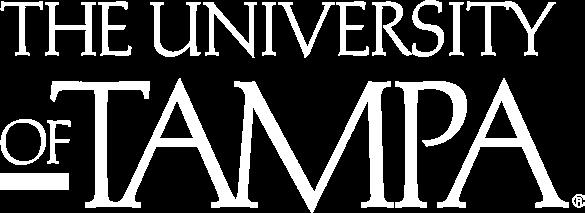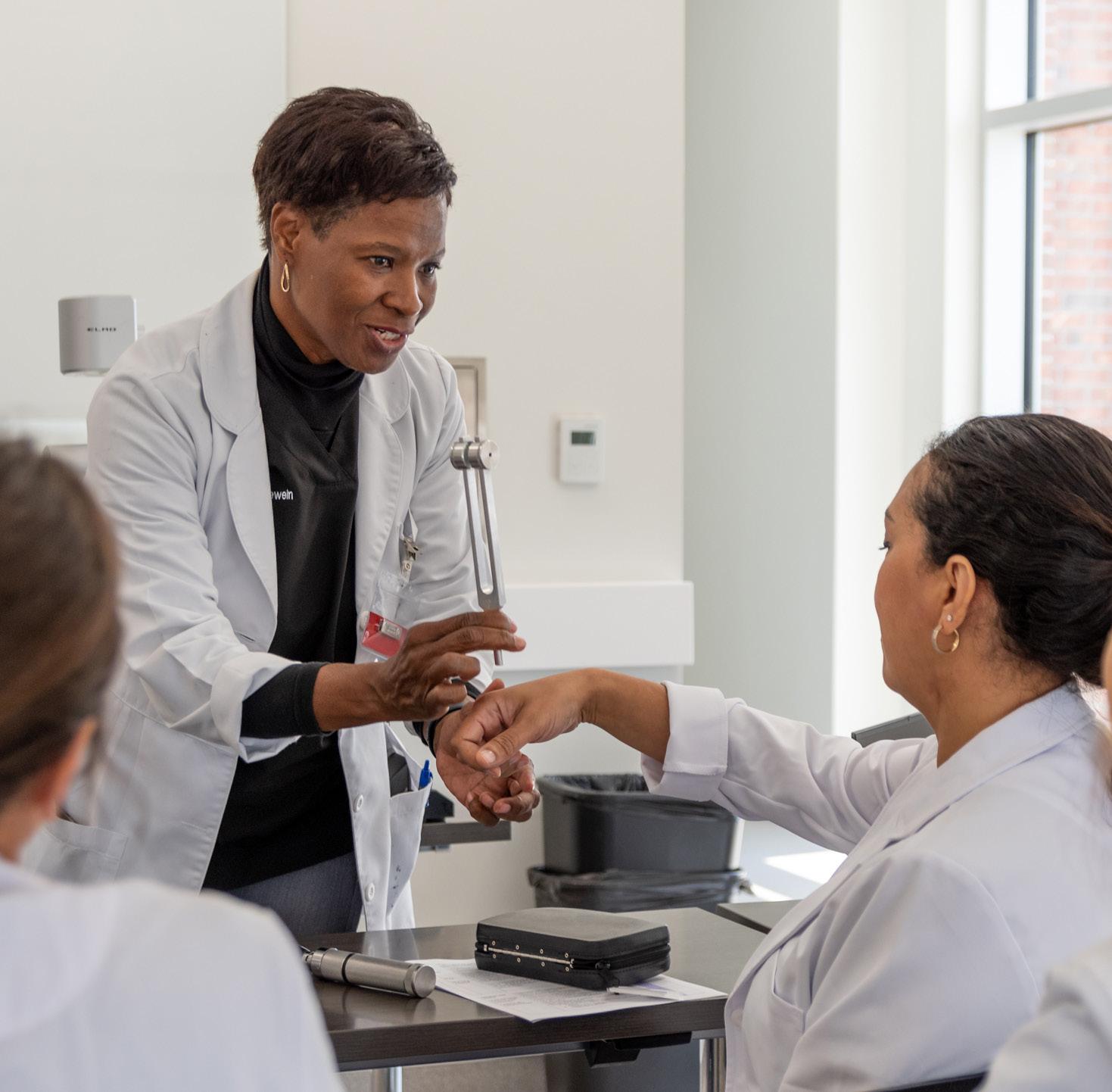NURSE PRACTITIONER SPECIAL ISSUE



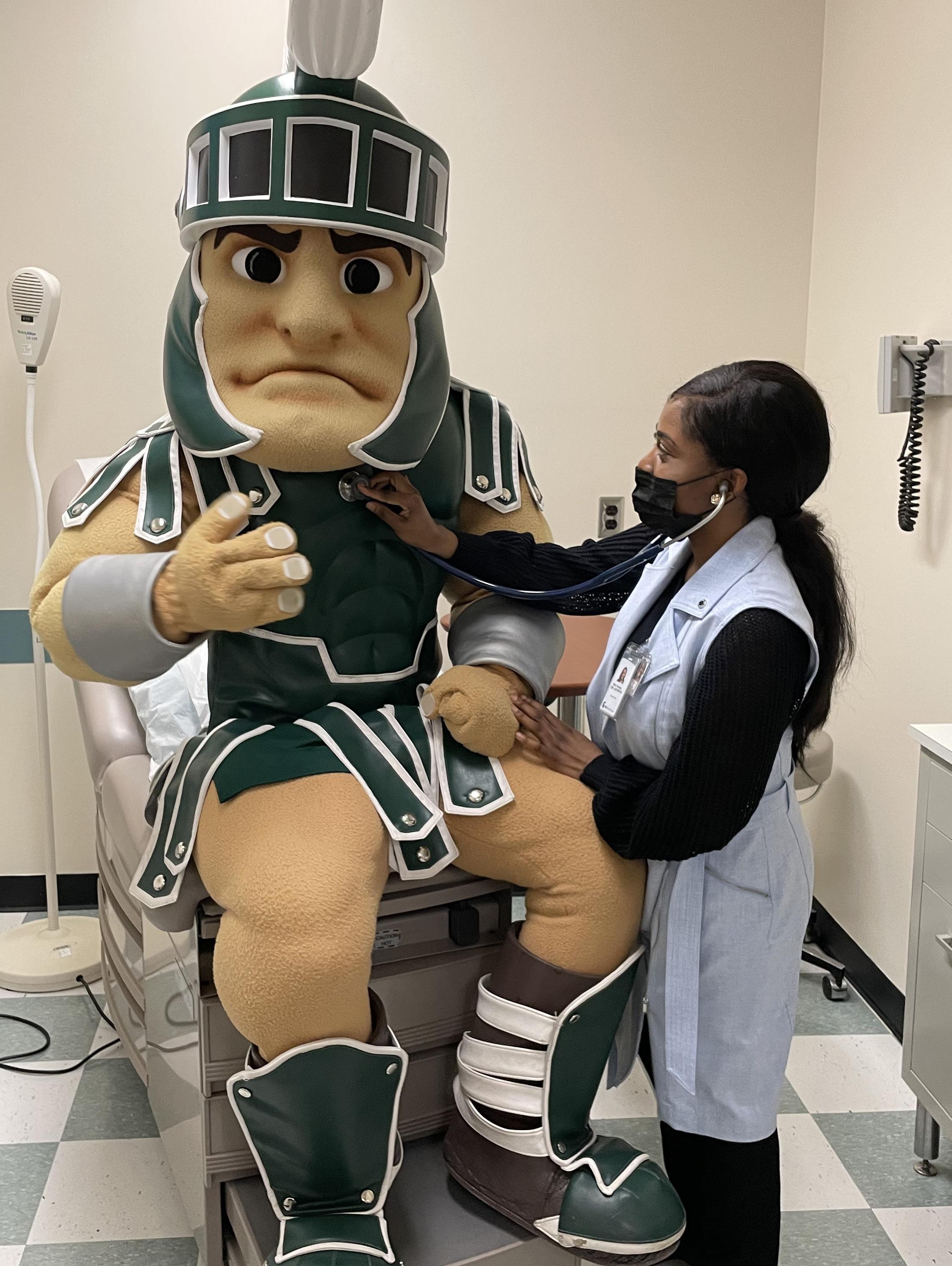


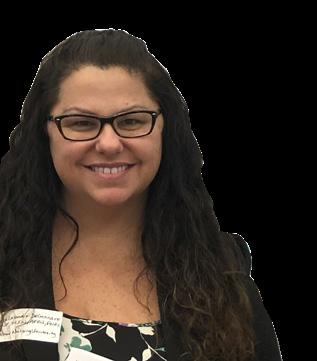
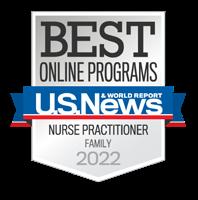

Some of the Many Benefits of Being a Nurse Practitioner
By Michele Wojciechowski10 Full Practice Authority Gains Ground in 26 States: What This Means for Nurse Practitioners
By Louis PillaChoosing the Best MSN Specialty to Meet Your Career Goals
By JuliaQuinn-Szcesuil 20 Q&A With Kaytlin Krutsch PharmD, MBA, BCPS, Co-Author of Hale’s Medications & Mothers’ Milk
By Springer PublishingEchoing the words of the American Association of Nurse Practitioners (AANP), nurse practitioners (NP) provide exceptional, person-centered care while serving as leaders in their communities. Despite the obstacles presented throughout the pandemic, nurse practitioners have remained resilient, working to remove practice barriers and increasing vital access to NP-delivered care.
It’s been a landmark year for NPs, and we celebrate the recent milestones achieved in patient-centered care. First, your voices rang out at the state and federal levels to help remove practice barriers. Now, 26 of the 50 U.S. states have secured Full Practice Authority (FPA). As a result, New York and Kansas patients gained full and direct access to NP-delivered care, and now across more than half the nation, NPs are working at the top of their education and clinical preparation.
In June 2022, the U.S. House of Representatives passed H.R. 6087, which would help ensure that federal workers can have their work-related injuries certified by an NP and have any related health care needs overseen by an NP. However, more needs to be done, and you can help move this bill forward by urging your Senator to take up and pass H.R. 6087.
This month, Minority Nurse focuses on nurse practitioners.
• There’s never been a better time to be a nurse practitioner, and Michele Wojciechowski highlights some of the many benefits.
• Getting your master’s degree is a significant step, so Julia Quinn-Szcesuil shares tips for choosing the right MSN program for your career goals.
• Full practice authority is gaining ground, and Louis Pilla looks at what this means for nurse practitioners.
• Enjoy a Q&A with the co-author of Hale’s Medications & Mothers’ Milk as we explore the world of lactation pharmacology and the impact of this incredible resource.
Nurse practitioner: patient, kind, trained professional who focuses on the needs of others. A real superhero.

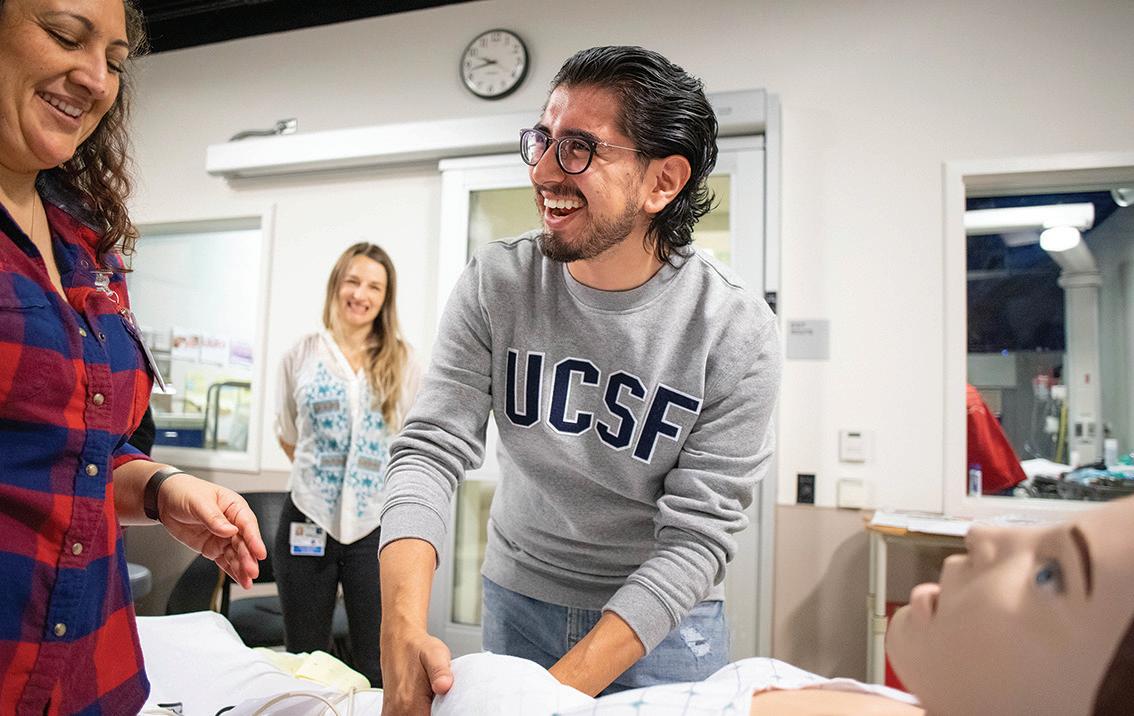
Consistently ranked among the top nursing programs and specialties in the country, the innovative coursework and residencies in our two-year Master of Science program will equip you with a strong knowledge base in the specialty area you choose, and the ability to formulate and apply theory to nursing practice.

• Choose from multiple specialties, ranging from primary and acute care to health policy and public health
• Receive hands-on training through clinical rotations that we arrange
• Gain the confidence and knowledge to advocate for patient and community needs, as well as critical health care issues
The application for fall 2023 admissions is open through Feb. 1, 2023, with some specialties continuing to accept applications after Feb 1.
Learn more about the UCSF School of Nursing’s Master of Science program and attend a virtual information session at nursing.ucsf.edu
among public nursing schools nationwide
specialties ranked among the top in the nation
93% pass rate on National Certification Examination
Seton Hall University’s College of Nursing is committed to fostering an environment that embraces differences among individuals from diverse social, economic and racial backgrounds. Students from underrepresented populations have an opportunity for scholarships, grants and stipends that will enable their commitment to lifelong learning, service and leadership for the greater good of the global society. To
more about how a degree from Seton Hall can allow you to give back to the community, visit www.shu.edu/diversenurse
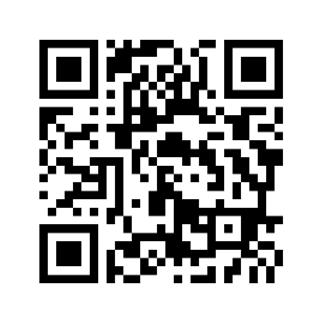

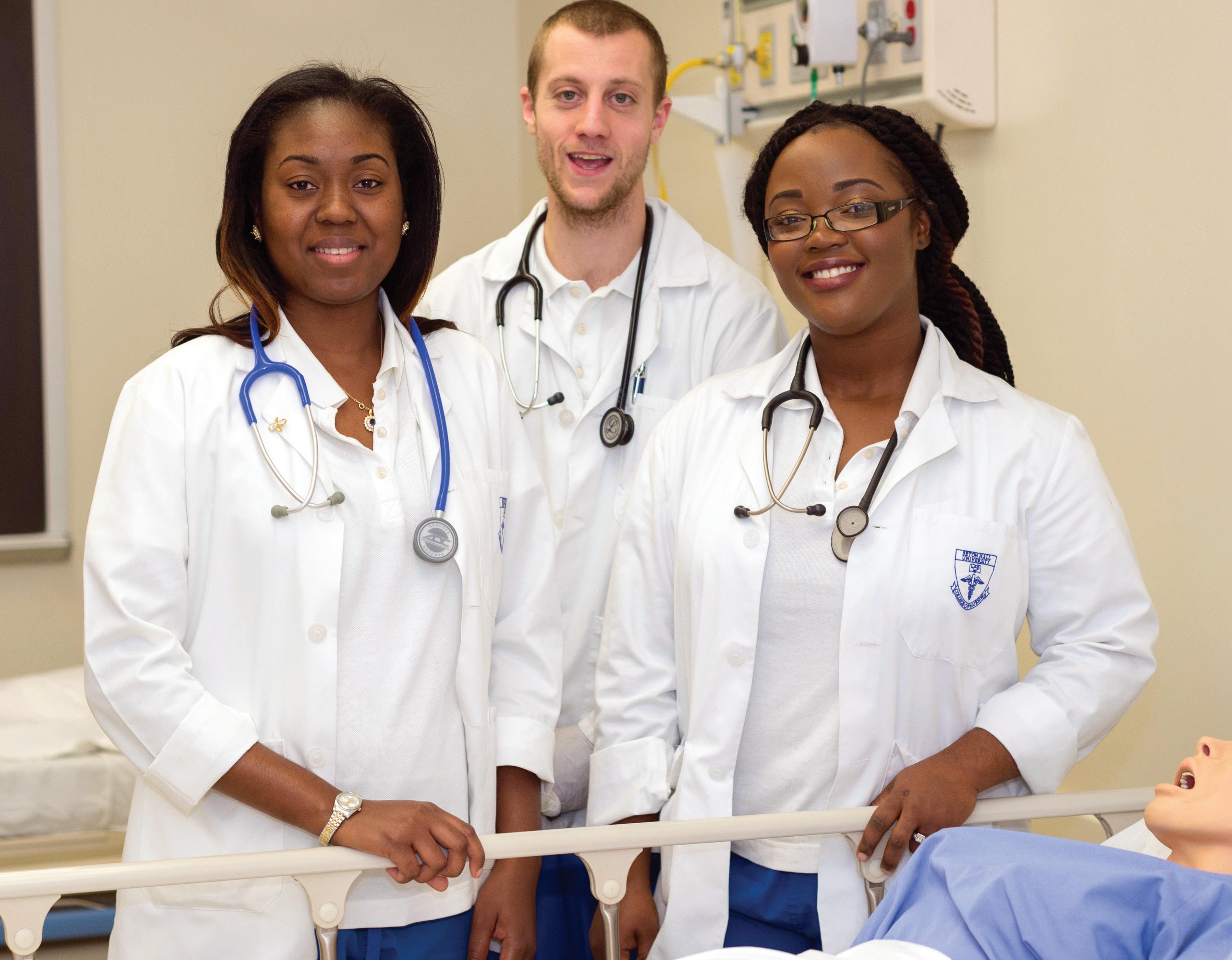
 BY MICHELE WOJCIECHOWSKI
BY MICHELE WOJCIECHOWSKI
Between the role’s autonomy and the hours’ flexibility, there’s never been a better time to be a Nurse Practitioner (NP). What are the advantages of becoming an NP? Unfortunately, we don’t have nearly enough space to list them all, but our sources will give you a good idea of some. “I believe that nurse practitio ners bring a unique perspective to the relationship with our patients. Our educational foun dation is rooted in the nursing model, whereas physicians are trained in a more traditional medical model. Nurse practi tioners are accustomed to treat ing the entire patient rather than solely treating a disease or condition,” says Teresa Cyrus, DNP, APRN, FNP-C, co-owner of Integrative Geriatrics, a practice that provides care to underserved adults and seniors in rural Minnesota.
“I believe it is a more holistic approach to patient care. For example, if my patient is being seen for frequent falls, I can visit their home to determine what may be contributing to them. In addition, I will check in with the nursing staff and the patient’s family to get additional perspectives when developing a treatment plan, and then con
been filling roles where it’s been more difficult to recruit physicians in geriatrics, fam ily practice, and rural areas.
“In the past several years, I have also seen an increase in NPs working as hospitalists, in more nuanced specialty areas, and even as medical directors.”
In many states, the role of the NP has or is changing.
“NPs’ role and scope of prac tice have expanded depend ing on the state where they are licensed to practice. For example, in my state, NPs can practice independently. That means they can own, man age, and operate their clinics without a collaborating phy sician,” explains Rei Serafica, Ph.D., who is a full-time fac ulty member at the University of Nevada, Las Vegas School of Nursing and works once a week at an inpatient psychi
in all sectors. NPs are seen everywhere now—from clin ics to hospitals and are at the front, cutting-edge of clinical research, faculty, and teach ing,” states Isra Hashmi, FNP-BC, who works in pri vate practice. She adds that job security is a big relief because not only are NPs not going anywhere, and their career is only expected to grow.
Nicole Beckmann, Ph.D., APRN, CPNP-PC, embod ies the diversity of working as an NP, as she has worked in three different special ties over 15 years of practice. “[I] find this to be one of the important ways I can con
Nurses use their holis tic approach to patient care to see patients’ health problems in the context of their life styles, personal goals, and preferences.
makes being a nurse practitio ner so satisfying.”
As for hours, NPs may still have to work long hours, but Beckmann explains the upside of it.
“Nurse practitioners are accustomed to treating the entire patient rather than solely treating a dis ease or condition.”
tinue to monitor the patient closely after our visit,” she says. Cyrus, an assistant professor at St. Catherine University in St. Paul, adds that NPs have
atric mental health facility in North Las Vegas.
“Some NPs are entrepreneurs, consultants, educators, and even researchers. Some NPs work in academics like me. We are [training] future NPs, and we also manage and balance our careers by devoting a day to practice as NPs to maintain our professional skills and cre dentials. In other words, it is a dynamic profession that offers flexibility and multiple career opportunities.”
The opportunities seem endless regardless of the type of NP a nurse chooses to become.
“The healthcare system has found relief in employing us
Job security is a big relief because not only are NPs not going any where, and their career is only expected to grow.
tinue to grow profession ally and challenge my skills. Additional benefits include increased autonomy in deci sion-making and management of health conditions. Nurses use their holistic approach to patient care to see patients’ health problems in the con text of their lifestyles, personal goals, and preferences. In addi tion, nurses recognize their patients as people, learning each patient’s story, priorities, and unique needs. [We] bring this approach to the patient/ provider relationship to diag nose conditions and partner with patients to determine the best treatment options. Patients appreciate this con nection and the meaningful relationships they form with their NP providers. This is what
www.minoritynurse.com www.dailynurse.com
“Depending on the work set ting of the nurse practitioner, hours may include evening, overnight, or weekend shifts. However, this also means that nurse practitioners can choose a position and work schedule that fits their lifestyle. For example, part-time positions, extended shifts, and block scheduling may allow for long periods off or for the nurse practitioner to
Nurse practitioners can choose a position and work schedule that fits their lifestyle.
have the work/life balance they seek,” she says.
Cyrus says she loves her job, “Being an NP is tremendously rewarding, and I encourage any nurse who expresses interest to pursue that calling.”
Michele Wojciechowski is a national award-winning free lance writer based in Baltimore, Maryland. She loves writing about nursing but comes close to faint ing when she sees blood. She’s also the author of the humor book,
“They can own, manage, and operate their clinics without a collaborating physician.”
 BY LOUIS PILLA
BY LOUIS PILLA
In the long struggle to gain full practice authority (FPA), nurse practitioners (NPs) can point to notable advances in the last few years. Now, patients in more than half of the states, the District of Columbia, and two U.S. territo ries have full, direct healthcare access from NPs.
In April 2022, New York and Kansas granted FPA to NPs. That brings to 26 the number of states where NPs can prac tice to the top of their license without restriction. In this article, we’ll look at how that progress was made, the impact of COVID, and how newly pro posed federal legislation would strengthen NP practice. But first, let’s have a look at what FPA means.
“Full practice authority is essentially that the nurse prac titioner can practice to the full extent of their education and training,” says April N. Kapu,
authority,” according to Kapu. She notes that four states moved to full practice author ity through the pandemic: Delaware and Massachusetts in 2021 and New York and Kansas in 2022. “It’s because we dem onstrate our commitment to quality and equitable care and ensuring care is provided in all communities.”
In states that have moved to
care. They provided very highquality care. They were able to provide more accessible care. As you saw throughout the pandemic, they were in com munities and churches, going door to door, seeing patients in their homes, and doing every thing they did in the hospital and the ICUs. So we demon strated that continued quality of care. And that is what quick ened the momentum during the pandemic; the executive orders provided that opportu nity,” Kapu says.
full practice authority, “we’ve seen improved patient care out comes. We’ve seen an increase in the workforce. We’ve seen an increase in nurse practitio ners working in historically underserved urban and rural areas,” Kapu says.
“Full practice authority is essentially that the nurse practitioner can practice to the full extent of their education and training.”
DNP, APRN, ACNP-BC, FAANP, FCCM, FAAN, president of the American Association of Nurse Practitioners (AANP). “Nurse practitioners are trained to evaluate patients, make diag noses, order and interpret tests, prescribe medications, coor dinate care, and educate. We are educated and trained to do these things,” says Kapu.
In the past few years, the pace has “really picked up as we have seen more and more states move to full practice
While devastating, COVID helped bring to light the highquality care that NPs provide and boosted efforts to gain FPA. In some states where NPs worked under less than full practice authority, the gover nors signed executive orders waiving various restrictions, notes Kapu.
In Ohio, a reduced practice state, an emergency authori zation during COVID allowed NPs to deliver care via tele health, notes Evelyn Duffy, DNP, AGPCNP-BC, APRN-NP. However, she notes that NPs can still practice via telehealth, and that ability is no longer contingent on the emer gency authorization. Based in Cleveland, Duffy is an NP in the University Hospitals Geriatric Medical Group and a professor at the Frances Payne Bolton School of Nursing. An NP since 1981, Duffy notes that “we’ve come a long way in Ohio. We got full prescrip tive authority at the end of the 1990s.”
updated to “allow NPs to practice to the extent of their education and training, not beyond that, but to the extent of their education and train ing, as they are very capable of doing and have decades and decades of evidence demon strating their quality-of-care outcomes. So it’s getting that message out that all we have to do is update those laws. It’s no cost or delay and can be put into place, and you would see much-increased access.”
Kapu points to Arizona as an example of what may hap pen for states that grant FPA. Arizona, she notes, moved to FPA in 2001. Five years later, the NP workforce doubled, and rural areas saw a 70% increase in NPs.
COVID helped bring to light the high-quality care that NPs provide and boosted efforts to gain FPA.
“That’s where we saw the opportunity for nurse practi tioners to continue providing
However, like all Ohio NPs, Duffy needs a collaborative agreement with a doctor. “Ohio is in the reduced prac tice category,” she notes. “Not a lot obstructs me from doing what I want. The only thing that gets in the way is hav ing to make that collaborative arrangement.”
Kapu stresses the need to get out the message that laws limiting NP practice need to be revised. Laws need to be
www.minoritynurse.com www.dailynurse.com
Laws need to be updated to “allow NPs to practice to the extent of their edu cation and training not beyond that.”
On the federal level, new legislation, the Improving Care and Access to Nurses (ICAN) Act, was introduced in September in the House of Representatives. Supported by the AANP and other major nursing organizations, the act would update Medicare and Medicaid to enable advanced
“We’ve seen an increase in nurse practitioners working in historically underserved urban and rural areas.”
“Not a lot obstructs me from doing what I want. The only thing that gets in the way is having to make that collaborative arrangement.”
Care and Access to Nurses (ICAN) Act, was introduced in September in the House of Representatives. The act would update Medicare and Medicaid to enable advanced practice nurses to prac tice to the top of their education and clinical training.
practice nurses to practice to the top of their education and clinical training, accord ing to a press release from the American Nurses Association.


Although getting FPA in all states has taken a little lon ger than wanted, “we have momentum,” says Kapu. “I believe we’ll get there, espe cially with the increasing access to care needs that we’re
seeing in the United States today.”
Louis Pilla is a seasoned pub lishing expert with over 20 years of experience providing content and digital products to healthcare audiences.
Rosalind Franklin University continues to lead, inspire and educate a diverse student body of healthcare professionals in announcing the new College of Nursing.
The academic programs of RFU’s College of Nursing are the result of years of planning and building strategic partnerships that work to impact today’s healthcare challenges, address the social barriers to health and wellness, and ultimately lead to better community health outcomes.
Our 33-month, hybrid Doctor of Nursing Practice: Psychiatric Mental Health Nurse Practitioner program provides registered nurses (RNs) with the advanced knowledge and skills needed to meet the mental health needs of their community.
Our 24-month direct-entry Master of Science in Nursing program (MENP) is designed to prepare non-nurses for both the fundamental nursing concepts and skills needed to join the profession lead it.
Learn more about our new College of Nursing at rosalindfranklin.edu/con SEE HOW we’re preparing nurses for the future 3333 Green Bay Road, North Chicago, IL 60064-3095 rosalindfranklin.edu







 BY JULIA QUINN-SZCESUIL
BY JULIA QUINN-SZCESUIL

Choosing to get your master’s degree in nursing is a signifi cant step in mapping out the next part of a nursing career. But making this deci sion and choosing the right program for your personal and professional goals takes a lot of research and thought.
An MSN degree offers more profound knowledge and expe rience, leading to more sig nificant career opportunities. However, with many special ized degree options, you must reflect and research to find the best program.
MSN programs are diverse and focused on specific career paths, including a nurse prac titioner, so taking the time to choose the right program for you will pay off.
“It’s important to look at your career goals and your interests,” says Dr. Latina Brooks, Ph.D., CNP, FAANP, and assistant professor and director of the Master of Science in Nursing Program and the Doctor of Nursing Practice Program at the Frances Payne Bolton School of Nursing at Case Western University. For example, she says if you’re seeking more knowledge or something dif ferent from your current career path, you’d naturally look to an MSN degree as one way to move forward.
If you want to become an advanced practice nurse practi tioner (APRN), look for schools that offer clinical programs
Unlike a BSN program, where the end goal is to graduate and become a working registered nurse, the master’s degree in nursing offers vastly different outcomes.
aligned with what you see yourself doing. Many nurses can narrow down their prefer ences while in their pre-licen sure programs and through required clinical rotations and non-clinical courses, says Brooks.
“It starts in the RN pro grams, and then while they are working as an RN or in differ ent areas, they will understand their strengths and interests,” she says. With that clarity, you can start to think about what you need to do to meet your career goals.
While the MSN is the fun damental path to advanced practice and licensure as a nurse practitioner, there are changes toward making the DNP a benchmark requirement for NP work. The difference seeks to ensure consistency of experience upon graduation with an MSN. Still, only some nurses want to pursue a DNP path, says Anne Derouin, DNP, APRN, CPNP, PMHS, FAANP, assistant dean and director of the MSN program at Duke University School of Nursing.
“A very dynamic change is happening,” she says, “and not all nurses are prepared in the same way.” Unlike a BSN program, where the end goal is to graduate and become a working registered
nurse, the master’s degree in nursing offers vastly different outcomes.
As a prospective MSN stu dent, you’ll quickly notice cur riculums vary widely. To find the program that matches the degree you need for the job you want, check all program guidelines and options to see all the courses and what the curriculum requires based on your credentials. While some programs are shorter, they aren’t necessarily going to give you the clinical hours you need for a particular role or that an organization requires.
Accelerated programs for those with a bachelor’s degree in a field other than nursing may require students to com plete prerequisites to advance into an MSN program. Other schools have MSN programs that are accelerated MSN/DNP programs, so you’ll graduate with both degrees.
“When I counsel students considering a master’s degree, I ask what they are passion ate about and what patients or populations they love to care for,” says Derouin. The answers should guide prospec tive MSN students because they will show the result that will help them become the nurse they want to be.
MSN programs can be clin ical for an advanced nurse practitioner specialization or nonclinical for nurses who want to work in management, with data or technology in informatics, or who plan to become an educator.
Within the APRN clinical routes, there are additional choices.

A family nurse practitioner path offers the greatest flex ibility and job potential, but Derouin says it’s not the best option for every nurse. For a student to make that deci sion, she says, you’ll need to be comfortable with caring for patients across the lifespan.
A family nurse practi tioner path offers the greatest flexibility and job potential, but it’s not the best option for every nurse.
“When I counsel stu dents considering a master’s degree, I ask what they are passionate about and what patients or populations they love to care for.”
A pediatric specialization will give greater depth and breadth of experience and knowledge if you prefer to work with infants and chil dren. And if you enjoy working with older or cardiac patients, the degree path geared toward those populations will offer a better career and skill match, she says. “Then you are no lon ger a generalist but an expert,” Derouin says. “Think of what you love to do and hone your skills in that area.”
Brooks agrees, noting that nurses should keep their minds open when considering dif ferent paths. For example, nurses who enjoy technol ogy or business might find careers in nursing informatics
“It’s important to look at your career goals and your interests.”
or management that blends their interests and goals.
When assessing programs, Derouin advises students to look at certain factors. Make sure each program is accredited and that the faculty are practic ing nurse practitioners or nurse educators, as those faculty will have the most current industry knowledge.
Ask about clinical place ment, she says, as it’s an extraordinarily competitive part of many programs. Find out what kind of clinical access is available, if the school places students, or if the students have to research and secure their placements.


And use your time out of school to find out more. Ask people in your chosen field if you can shadow them or talk with them to see their daily work. “Most NPs are willing to share their journey into their role,” Derouin says.
Investigate all the pos sibilities so that you can reap the full benefits of an advanced degree.
of our profession,” says Brooks. “There are so many aspects to nursing.”
Make sure each program is accredited and that the faculty are practic ing nurse practitioners or nurse educators
“If you go on to graduatelevel education, it opens up a whole other world of all that you can do,” says Brooks.
If in the process of research ing an MSN path, you still aren’t sure what area of nursing
you want to pursue or if you have the resources to devote to an advanced degree, she rec ommends taking more time to make a decision. “You don’t want to waste your time or money if you’re not sure it’s something you want to jump into,” says Brooks. Then, inves tigate all the possibilities so that you can reap the full ben efits of an advanced degree.
“With graduate programs, there are so many avenues you can take, and that’s the beauty
Julia Quinn-Szcesuil is a free lance writer based in Bolton, Massachusetts.The University of Cincinnati’s online Master of Science in Nursing Family Nurse Practitioner program opens the door to a rewarding career as a nurse practitioner.

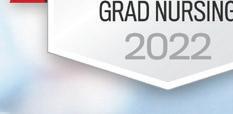


• 95% pass rate on the American Academy of Nurse Practitioners Certification


• Flexible courses taught 100% online by clinically practicing faculty
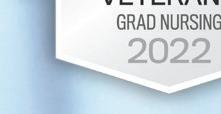
• Ranked #11 in Best Online Master’s in Nursing Programs and ranked #4 in Best Online Master’s in Nursing Programs for Veterans by U.S. News & World Report.
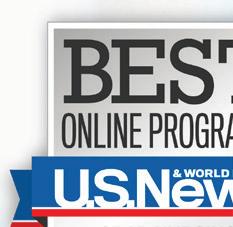

Earn
advanced degree from a top-ranked program that supports you.

We asked Kaytlin Krutsch, PharmD, MBA, BCPS, a cou ple of important questions about her work in the world of lactation phar macology and the impact of this incredible resource.
Q: What brings passion to your work?
A: It touches on many things I love: maternal health, feminism, pharmacology, nutrition, education, progress, and practical application to clinical service. Plus, I have a daughter, have experienced the issues our Moms and providers have, and am currently six months pregnant.
prescriptions for breastfeed ing Moms. It’s primary care. Urgent care. Specialists. Help them understand what you know!
2. Be prepared for information to change. More research is being done involving breast feeding Moms than in the past—which means more answers!
estimate what we expect and what to look for if the ben efits outweigh the risks. We’ll not leave clinicians with the burden of working it out for themselves.
Q: Why is keeping mothers breastfeeding so important?

A: Everything. I specialize in the creation and transla tion of breastfeeding medi cation research. For me, this means the entire process. Most researchers stop at publishing the answer to their questions. We find out the risk involved (quantifying drugs in milk, identifying infant outcomes) but don’t stop until the infor mation is in the hands of the decision-maker.
Q: Do you have any advice for lactation consultants or clinicians in the field?
A: If I had to choose my top three pieces of advice, they would be-
1. The topic of medication use in breastfeeding Moms belongs to ALL adult health care providers—spread the word! LCs, pediatricians, and obstetricians are all invested in the topic but don ’t write most of the
3. Overall, we do a much better job protecting babies from potential risks of drugs in milk than we do in look ing out for Mom’s health. However, with the exten sion of breastfeeding time frames (like the AAP’s recent move from 12 to 24 months of breastfeeding), maternal medication use will become even more of a pressing issue. Also, FYI, the reason for the 12-to-24-month extension? Maternal health benefits of breastfeeding (not the infants!). But what about when Moms overlook their medication need to continue breastfeeding? It’s a conundrum and usually doesn’t need to be an issue, as most meds are safe during breastfeeding.
Q: In your opinion, what makes Hale’s Medications & Mothers’ Milk 2023 the best resource for clinicians?
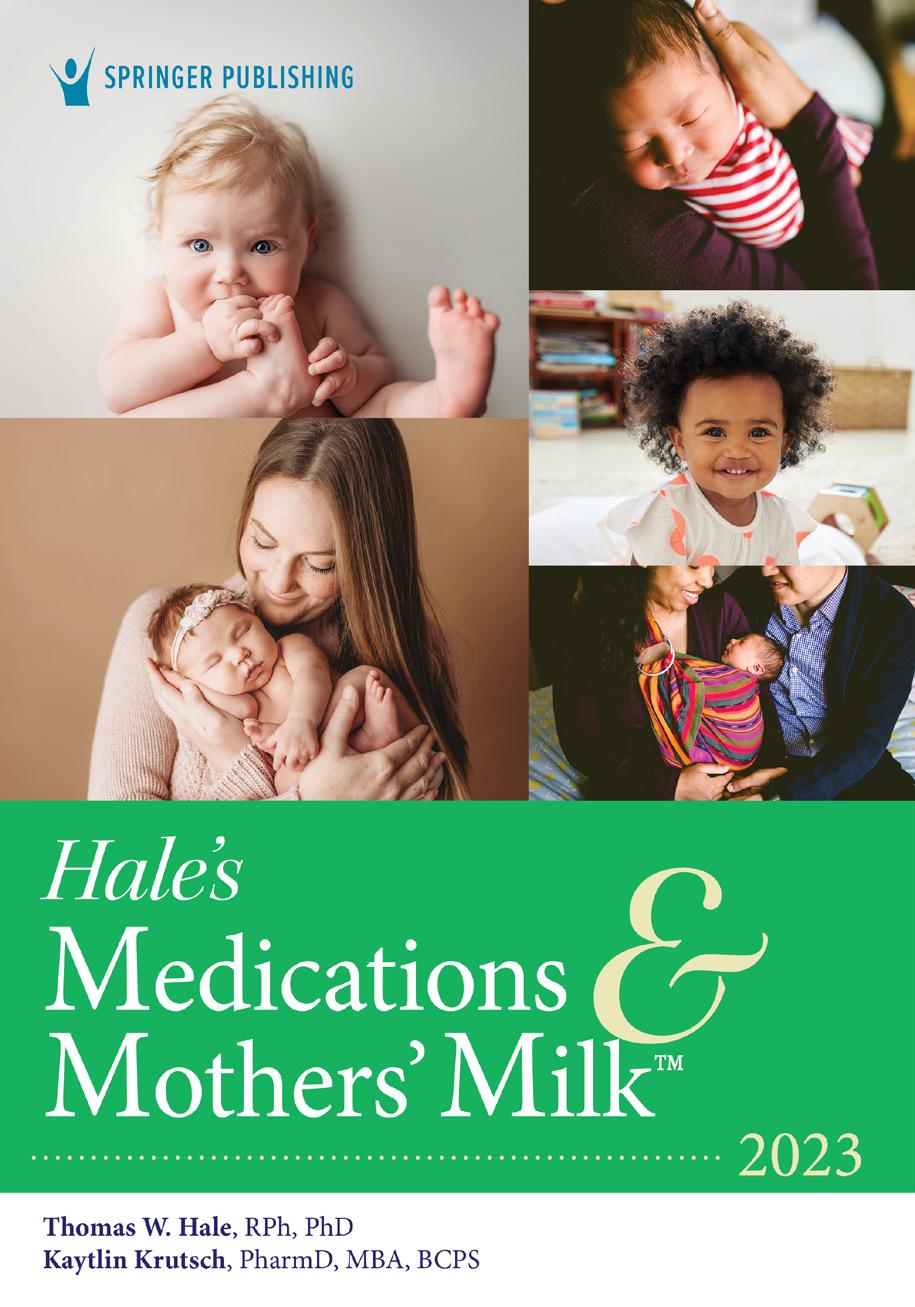
A: It’s practical. We know how time-consuming it is to go through the research and what it takes to evaluate what is being presented. So we remove that step for clinicians and produce straightforward evaluations of what they need to know.
Many sources might provide information or summaries but are afraid to fill in the gaps. Even when we don’t have clear information, we do our best to
A: Maternal outcomes! For every 20 women we keep breastfeeding for a year, we prevent 1 case of breast can cer. And that is only looking at breast cancer—there are so many other benefits: less dia betes, hypertension, cardiovas cular events - the list goes on.
Q: What are some difficulties you face in the research pro cess? What are some wins?
A: Many topics need atten tion, and we must strategically pick which ones to pursue (or not). Wins: We love when we can collaborate with other
researchers with the same questions. Milk is hard to work with, and we’re among the few who know how to do it. It’s a barrier for many groups to answer the questions they have. The more people we can teach to work with milk, the more answers we will get! I’m hoping for a domino effect.
Q: How will your research benefit clinicians and breast feeding mothers?
A: Haha. Our entire goal is to do research that bene fits clinicians, breastfeeding Moms, and their infants. It’s about reproductive justice. Women (and their clini cians) should be allowed to make informed choices about their medication and health. We are working on protect ing women through research, not from it.
Q: What is your role in mak ing breastfeeding a safer process?
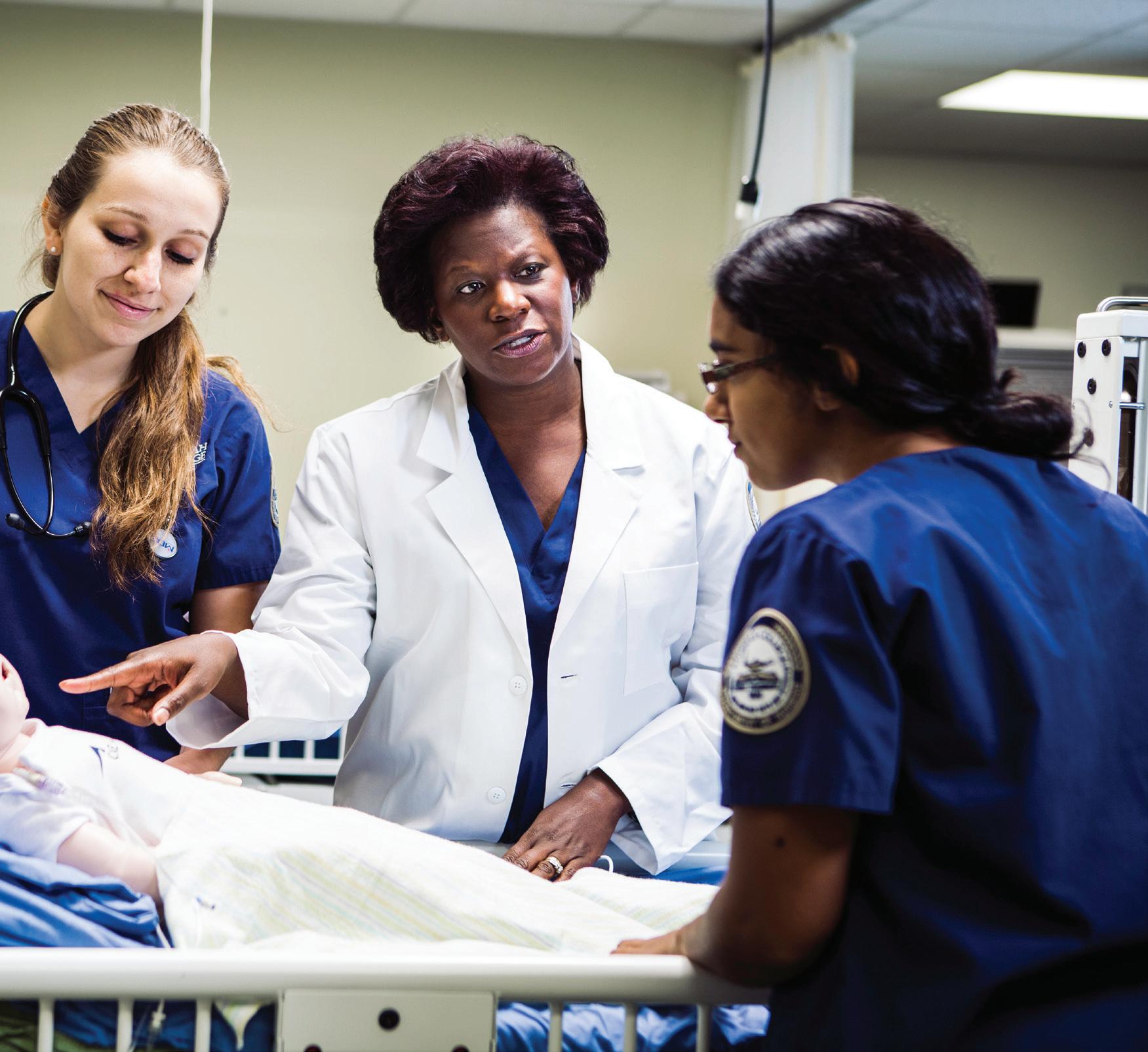
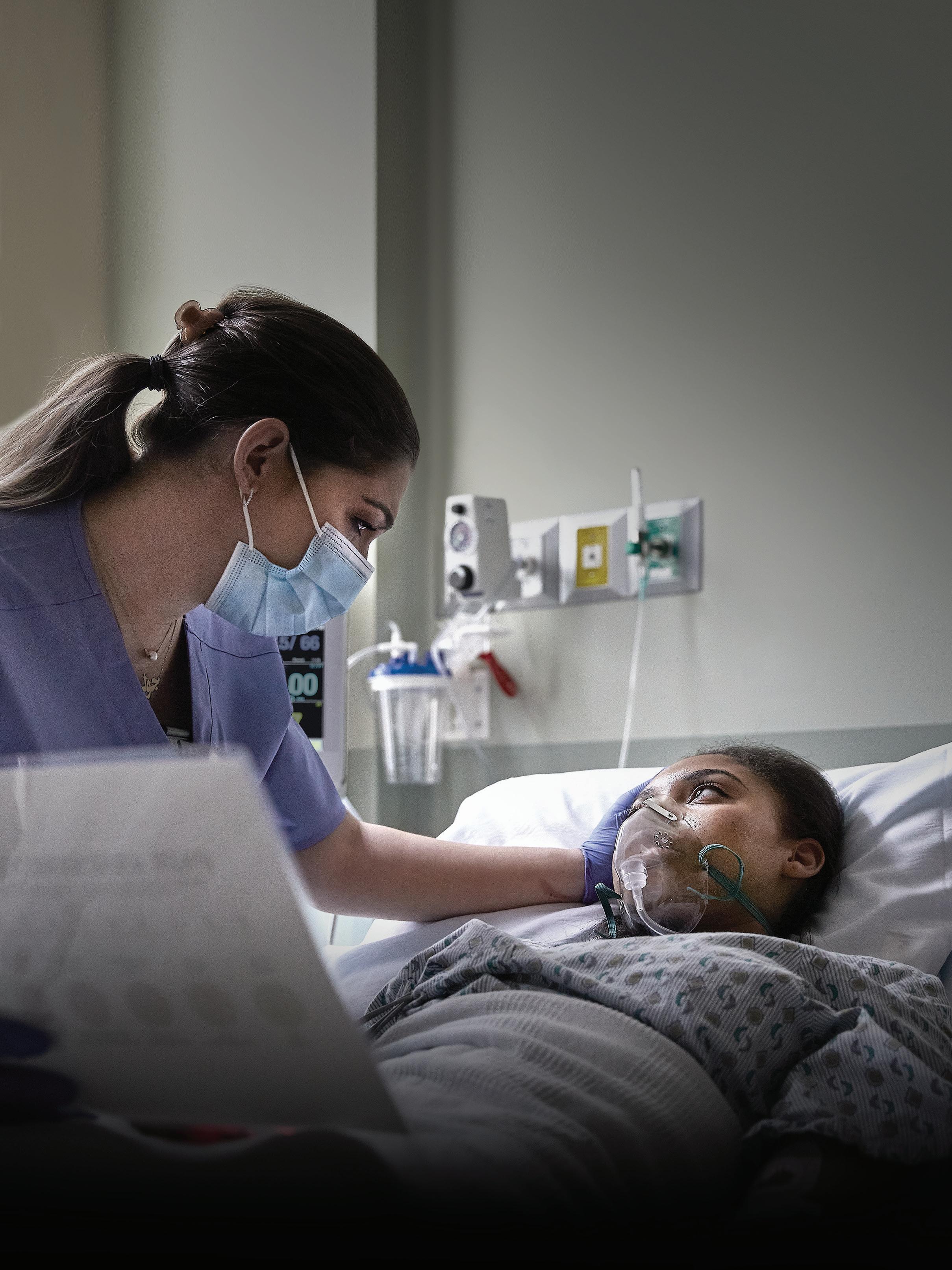
“You have to have a special talent to understand patients. Who they are and what they want is extremely important to me.”
- Jouli, RN, BSN
•
In the rapidly changing world of health care, skilled nurses with an advanced nursing degree are in high demand. Advance your career as a family nurse practitioner or in nursing leadership with a Doctor of Nursing Practice degree or as a nurse administrator or nurse educator with a Master of Science in Nursing degree from Messiah University.
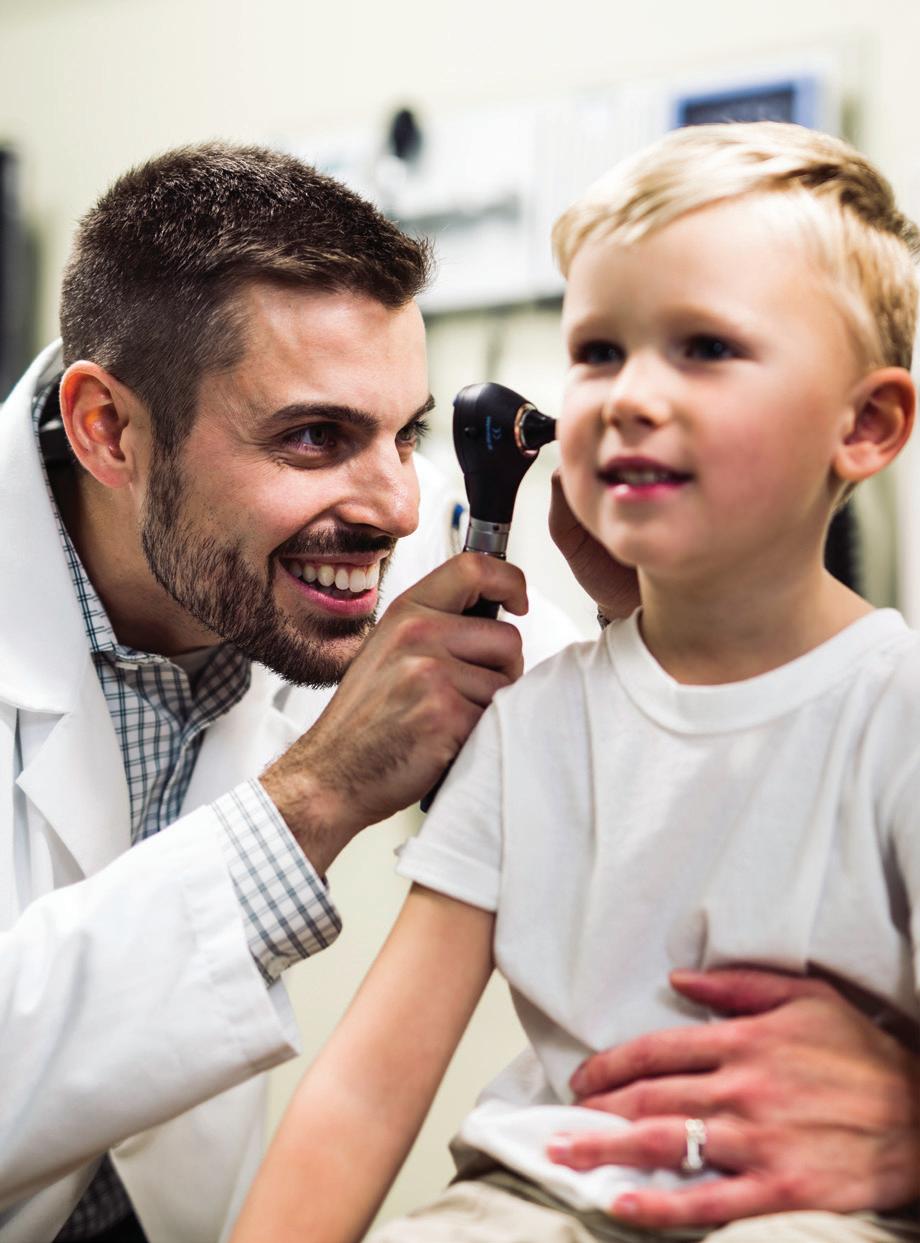

•
• Deferred tuition option with no out-of-pocket tuition fees
Messiah’s MSN and DNP degree programs are accredited by the Commission on Collegiate Nursing Education.